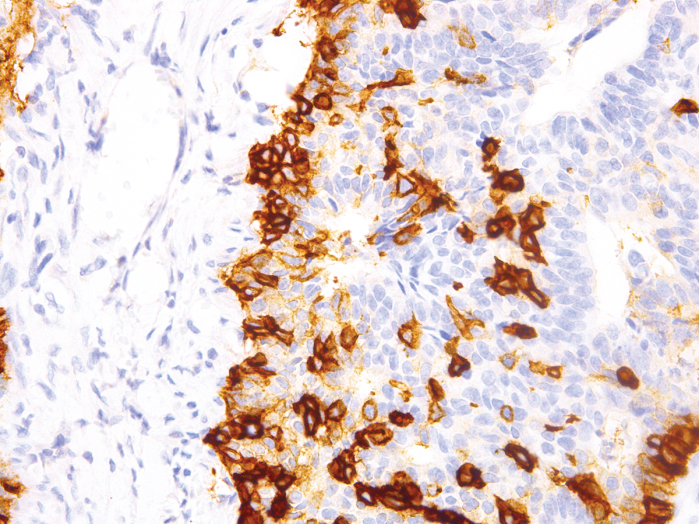Anti-NGFR (TNFRSF16) (Hu) aus Maus (IHC637) – unkonj.

-
Übersicht
Artikelnummer AB-138366 Spezifität Spezies-Reaktivität Immunogen Wirtsspezies Isotyp Klon Klonalität (Mono-/Polyklonal) Anwendung ELISA (Enzyme Linked Immunosorbent Assay), Immunhistochemie (IHC), Immunhistochemie (Paraffingewebe)
Konjugation Verdünnung Format < 0,1% NaN3, 1% BSA, in Tris Puffer (pH 7,3-7,7), Konzentrat, ProteinA/G-gereinigter Antikörper
Zweckbestimmung Temperatur - Lagerung Temperatur - Transport Hersteller / Marke Uniprot_ID Gene_ID Alias CD271, Gp80-LNGFR, LNGFR, Low Affinity Nerve Growth Factor Receptor, Low affinity neurotrophin receptor p75NTR, NGFR, p75 neurotrophin Receptor, P75(NTR), TNFRSF16, Tumor necrosis factor receptor superfamily member 16
- Datenblätter und Downloads
-
Weitere Produktinformationen
Nerve Growth Factor Receptor (NGFR), also known as p75, P-75NTR, or CD271, is a neurotrophin receptor belonging to the tumour necrosis factor receptor family. It is expressed mainly in Schwann cells and neurons, as well as a number of other non-neuronal cell types, and is also expressed in melanocytes, melanomas, neuroblastomas, pheochromocytomas, neurofibromas, neurotized nevi (type C melanocytes), and other neural crest cell or tumour derivatives. It has been suggested that NGFR may act as a tumour suppressor indicated in prostate and urothelial cancer, and Anti-NGFR is often used in adjunct with S100, to aid in the diagnosis of desmoplastic and neurotrophic malignant melanomas. Anti-NGFR is also useful as an aid in the diagnosis of breast malignancy, as the antibody labels the myoepithelial cells of breast ducts and intralobular fibroblasts of breast ducts.
-
Bilder

Immunhistochemische Färbung formalinfixierter Paraffinschnitte (FFPE) von menschlichem Zervix-Gewebe unter Verwendung des monoklonalen Anti-Nerve Growth Factor Receptor (NGFR) Antikörpers (Klon IHC637).
Kontakt
